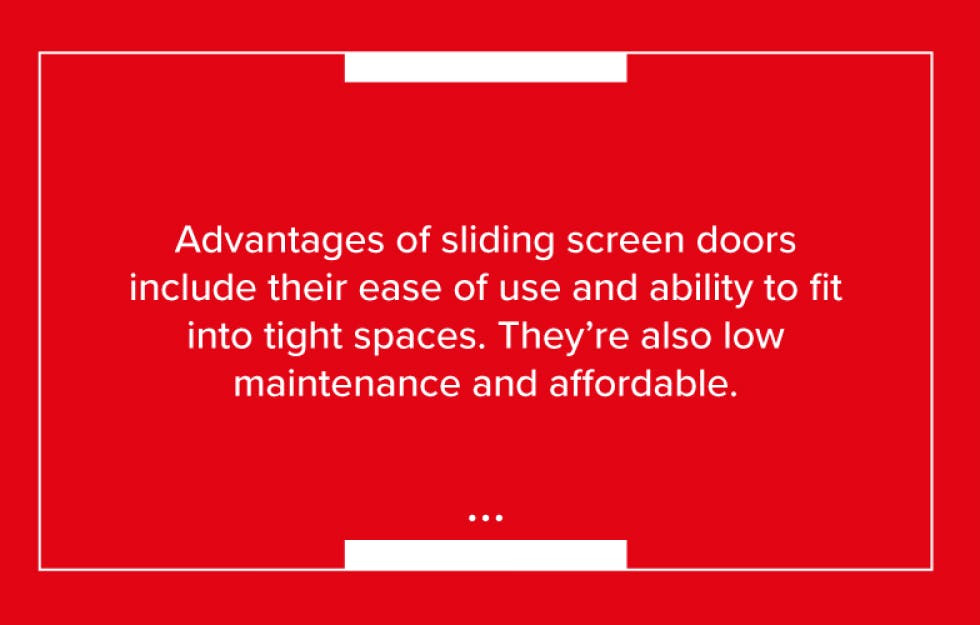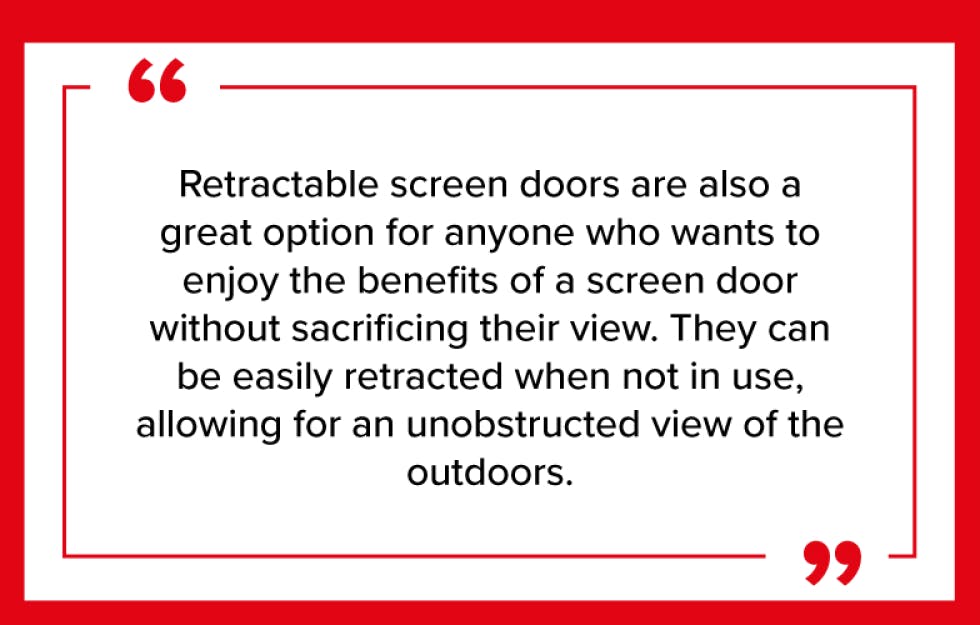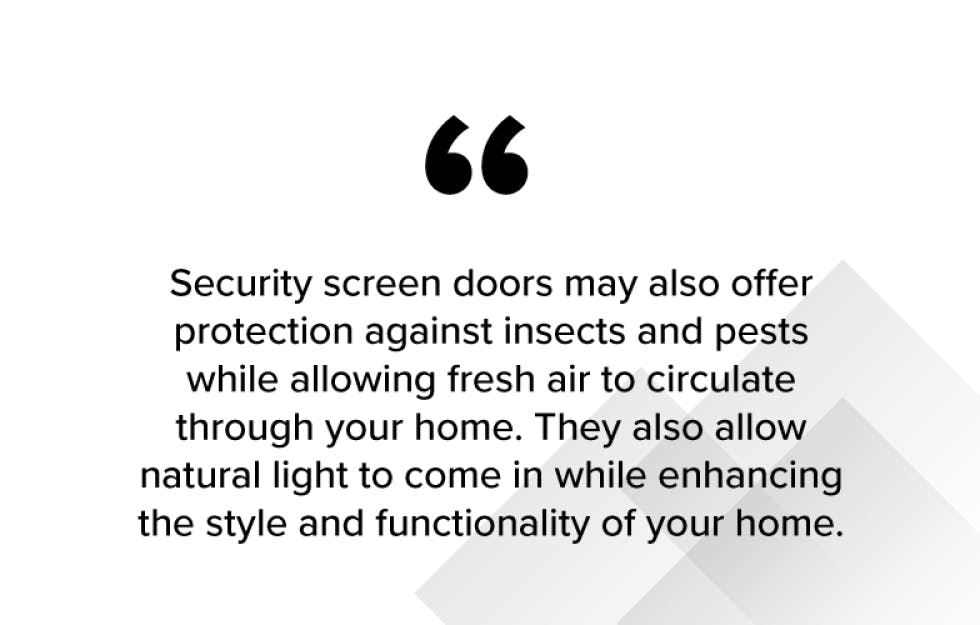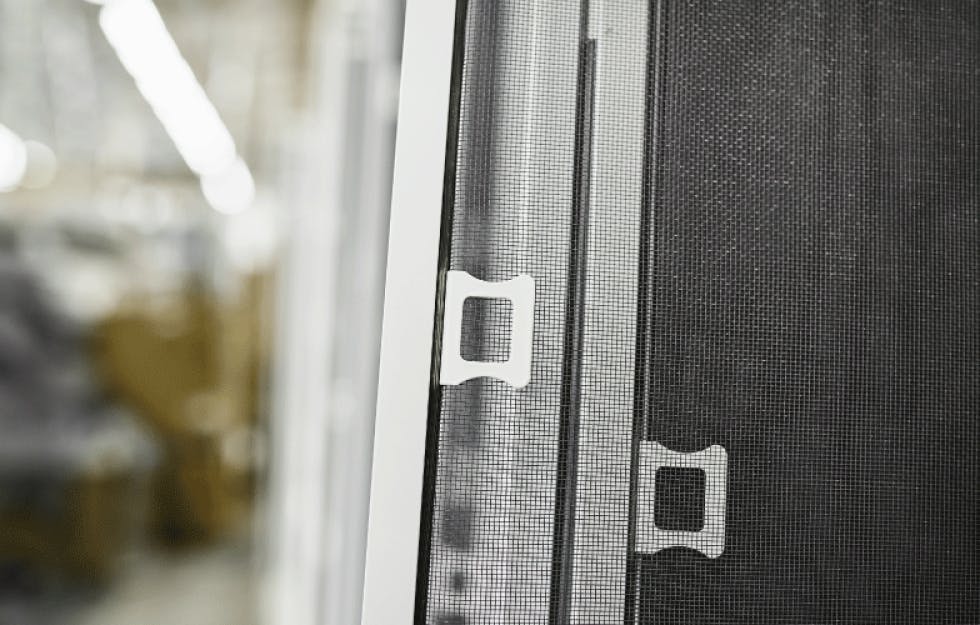Screen doors are a great addition to any home. They allow you to enjoy the fresh air and natural light while keeping bugs and other unwanted visitors out. However, with so many types of screen doors available, it can be overwhelming to choose the right one for your home.
That’s why we’ll be discussing the different types of screen doors available, their features, pros & cons. We’ll also provide installation and maintenance tips for each type, so you can make an informed decision on the best screen door for your home.
Understanding the various options is crucial to helping you select a screen door that complements your home’s aesthetic while providing the functionality you need. Whether you’re looking for a traditional hinged screen door or a retractable option, there’s a solution out there for everyone. Keep reading for more.
Sliding Screen Doors
Sliding screen doors are a popular option with homeowners, as they’re easy to use and don’t take up much space. They’re typically made of aluminum, vinyl, or wood and they’re available in a variety of colors and styles.
The advantages of sliding screen doors include their ease of use and ability to fit into tight spaces. They’re also low maintenance and affordable. However, sliding screen doors can be less secure than other types of screen doors, and they may not be as energy-efficient as hinged or retractable screen doors.
They may also not be suitable for areas with high winds or extreme weather conditions, and if you have pets or children, you may want to consider a sturdier and more secure option for your home.
To install a sliding screen door, measure the opening and choose a door that fits the dimensions. Installation typically involves attaching the track to the door frame and sliding the door into place. Plus, you’ll have to clean it regularly.

Hinged Screen Doors
Hinged screen doors are typically made of wood, aluminum, or steel, and they’re available in different styles and colors as well. They’re known for being safe and durable, with the ability to seal tightly against the door frame. This also makes them more energy-efficient than sliding screen doors.
However, hinged screen doors do require more space than sliding screen doors, and they can be costlier to install as well. Installation typically involves attaching the hinges to the door frame and attaching the door to the hinges.
Additionally, hinged screen doors can be more difficult to operate for those with mobility issues or limited strength, as they require more force to open and close compared to sliding screen doors. Despite these drawbacks, hinged screen doors remain a popular choice for homeowners looking for a secure and energy-efficient option.
To ensure the longevity of your hinged screen doors, it’s recommended to regularly clean and lubricate the hinges and hardware. Consider adding a pneumatic door closer to make opening and closing the door easier for those with mobility issues.
Retractable Screen Doors
Retractable screen doors are a newer type of screen door and they’re usually made from aluminum. They’re incredibly versatile and energy efficient since they seal shut. You can easily open and close them whenever you need to, though.
Retractable screen doors are also a great option for anyone who wants to enjoy the benefits of a screen door without sacrificing their view. They can be easily retracted when not in use, allowing for an unobstructed view of the outdoors.
On the flip side, retractable screen doors may be more expensive than other types of screen doors, and they require regular maintenance to keep them in good condition.
Installation typically involves attaching the track to the door frame and attaching the door to the track. Most homeowners will find the installation process more complex than with other types of screen doors.
You’ll also have to regularly clean and lubricate your retractable screen door to prevent damage and prolong its lifespan. With proper care, retractable screen doors can provide years of reliable use and enhance the overall aesthetic of your home.

Storm Screen Doors
Storm screen doors are designed to provide extra protection against the elements, making them a popular option for homeowners in areas with harsh weather conditions. These doors are typically made of aluminum and they can also be energy-efficient when properly installed. Storm screen doors can also enhance the security of a home as some models even come with locking mechanisms that make them more secure than traditional screen doors.
However, maintenance is quite demanding and involves regular cleaning and lubrication to make sure the door continues to work properly. Additionally, proper installation is crucial to ensure the door functions optimally and provides the desired level of protection and security. It’s also important to note that storm screen doors are not a substitute for a sturdy front door and should be used in conjunction with one.
Security Screen Doors
As the name implies, security screen doors are designed to provide extra protection against intruders, and they’re usually made from durable, high-grade steel. They’re popular with homeowners who are concerned about the safety and you can get them in all types of different styles.
Security screen doors may also offer protection against insects and pests while allowing fresh air to circulate through your home. They also allow natural light to come in while enhancing the style and functionality of your home.
However, they’re not particularly easy to install so you’ll definitely need to hire a professional security screen door installer to get the job done right. Proper installation involves ensuring that the frame is level and plumb and that screws and hinges are securely fastened.
Regular maintenance of security screen doors involves cleaning the screens, lubricating the hinges and locks, and checking for any damages or signs of wear and tear. It’s also important to tighten any loose screws or bolts to ensure the door remains secure.

Pet Screen Doors
Pet screen doors are designed to allow pets to enter and exit the house freely, and you’ll find them in materials like vinyl or aluminum. One of the biggest advantages of a pet screen door is that it’s convenient and super easy to use.
Pet screen doors can also help prevent damage to your regular screen doors by reducing the wear and tear caused by pets scratching or pawing at them. They can also provide added security by allowing your pet to enter and exit without leaving the main door open. Pet screen doors also come in different sizes to accommodate different kinds of pets and they provide a sense of independence for your furry friend.
However, if you have a particularly curious or adventurous pet, a dog door may not be the best option as they may wander off or get into dangerous situations. Additionally, if you live in an area with extreme weather conditions, a dog door may compromise the insulation of your home and increase energy costs. You’ll also want to check in with your landlord or property management company before installing one to make sure that it’s allowed.
If you live in an area with extreme weather conditions, such as heavy rain or snow, you may need to take extra precautions to ensure the dog screen door is properly sealed and insulated. Additionally, regular maintenance and cleaning of the door may be necessary to prevent wear and tear over time. It’s also important to ensure that the size of the pet screen door matches the size of your pet and to train your pet to use it properly.

Final Thoughts
Choosing the right screen door can really enhance the functionality and aesthetic of your home while providing the protection and convenience you need. As you go through the various options, remember to think about your specific needs and preferences, such as the level of security, durability, ventilation, and convenience you require. You should also consider the materials, installation, and maintenance requirements of each type of screen door so you can make an informed decision.
Sliding screen doors provide good ventilation, and are easy to use and maintain, but may be prone to damage and not as secure as other doors. On the other hand, hinged screen doors are durable and secure, but may take up more space and be difficult to install.
Retractable screen doors are space-saving, easy to use, and provide unobstructed views, but may not be as durable or provide as much ventilation. Storm screen doors are durable and provide added protection from the elements, but may be more expensive and difficult to install.
Last thought, security screen doors provide added security and durability but may be more expensive and difficult to install, while pet screen doors are convenient for pet owners but may not be as durable or secure as other doors.
Whichever option you choose, make sure to work with an experienced installer that has an excellent track record so you can get the most out of your new screen doors.
